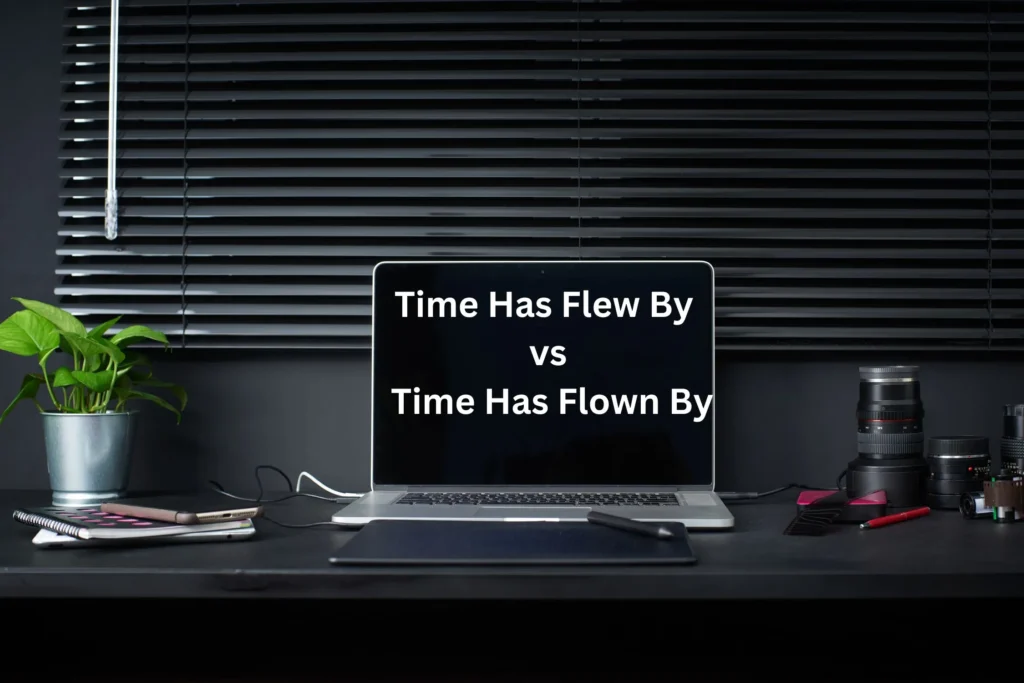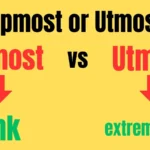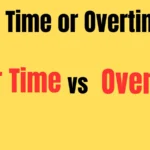Last updated on December 22nd, 2024 at 04:55 am
Understanding the correct use of English tenses is crucial for effective communication. A common point of confusion is whether to say “Time has flew by” or “Time has flown by.”
In this blog post, we’ll clarify which phrase is correct and why.
The correct phrase is “Time has flown by,“ as it uses the present perfect tense with the past participle “flown,” not the simple past “flew.”
We’ll Jump into the nuances of English tenses, specifically the present perfect tense, and explore common mistakes and their corrections.

What Is The Difference b/w Time Has Flew By or Time Has Flown By
| Key Point | Explanation | Example |
|---|---|---|
| Correct Phrase | Use “Time has flown by” in the present perfect tense. | “Time has flown by since our last trip.” |
| Incorrect Phrase | Avoid “Time has flew by” as “flew” is the past simple, not the past participle. | ❌ “Time has flew by quickly.” |
| Present Perfect Tense | Links past actions to the present using “has/have + past participle.” | “She has traveled to Europe.” |
| Past Simple vs. Present Perfect | Past simple is for completed actions; present perfect is for relevance to now. | Past: “I met him yesterday.” Present Perfect: “I have met him before.” |
| Idiomatic Meaning | “Time has flown by” reflects the quick passage of time. | “The past year has flown by in a blur.” |

Understanding English Tenses
Tenses in English help us situate actions and events in time. They are essential for clear and accurate communication.
Here’s a quick overview:
- Present Simple: Describes habitual actions or general truths. E.g., “She writes daily.”
- Past Simple: Refers to actions completed in the past. E.g., “She wrote yesterday.”
- Present Perfect: Connects past actions to the present. E.g., “She has written several books.”
Understanding these tenses helps you choose the right one for your context.
Present Perfect Tense Explained
The present perfect tense is used to express actions or situations that started in the past and have continued into the present or have recent relevance.
Here’s a closer look:
Definition and Structure
The present perfect tense is formed with:
- Subject + has/have + past participle
For example:
- “I have seen that movie.”
- “She has traveled to Europe.”
Common Uses
- Actions Started in the Past and Continuing to the Present
- E.g., “I have lived here for five years.” This means you started living here five years ago and still live here now.
- Recent Actions with Present Relevance
- E.g., “He has just finished his homework.” The action of finishing homework is recent and relevant to the present moment.
Past Simple vs. Present Perfect Tense
Choosing between past simple and present perfect can be tricky.
Here’s a breakdown of their differences:
Differences in Usage
- Past Simple:
- Used for actions completed at a specific time in the past.
- E.g., “She visited Paris last year.” The action is finished and tied to a specific past time.
- Present Perfect:
- Used for actions that occurred at an unspecified time and have relevance to the present.
- E.g., “She has visited Paris.” The exact time is not specified, and the action has relevance now.
Examples of Each Tense
| Tense | Example | Explanation |
| Past Simple | “I met him yesterday.” | The meeting happened at a specific past time. |
| Present Perfect | “I have met him before.” | The meeting occurred at some point before now, with relevance to the present. |
Analyzing “Time Has Flown By”
Grammatical Breakdown
The correct phrase is “Time has flown by.” Here’s why:
- Verb “Has”: Used with the subject “time” which is singular.
- Past Participle “Flown”: The past participle of the verb “fly” is “flown,” not “flew.”
Using “flown” aligns with the present perfect tense structure.
Correct Usage in Context
- Examples in Sentences:
- “It’s hard to believe how quickly time has flown by since we last met.”
- “The past year has flown by in a blur of activity.”
These examples show how “time has flown by” reflects the passage of time in a way that links the past to the present.
Why “Time Has Flew By” Is Incorrect
Understanding the Error
“Flew” is the past simple form of “fly,” and it does not fit the present perfect tense.
In the present perfect, we need the past participle form “flown.”
Common Misunderstandings
- Misuse of Tenses: Some might mistakenly use “flew” because it sounds like the correct past tense form. However, “flew” does not match the present perfect structure.
- Confusion Between Tenses: Confusing past simple with present perfect is a common issue. Understanding the function of each tense helps avoid such mistakes.
Struggling with English? Elevate your skills with our expert guides and tips—unlock your potential At Talk Speaker!
The Meaning and Use of “Time Has Flown By”
Conveying the Passage of Time
The phrase “time has flown by” is idiomatic, meaning time has passed very quickly.
It emphasizes how swiftly time seems to have gone by, often used in reflection on periods of activity or significant events.
Contextual Examples
- Personal Reflection:
- “Looking back at my college years, I can’t believe how fast time has flown by.”
- Event Reflections:
- “The vacation was over before we knew it. Time really has flown by.”
Learning from Common Mistakes
Review of Key Points
- Correct Phrase: Always use “time has flown by” when referring to the quick passage of time in the present perfect tense.
- Avoiding Mistakes: Understanding the difference between “flew” and “flown” helps prevent common errors.
Tips for Avoiding Mistakes
- Know Your Tenses: Familiarize yourself with the structure and usage of each tense.
- Practice Regularly: Use exercises and examples to reinforce correct tense usage.
- Seek Feedback: Have others review your writing to catch and correct tense errors.
People Question:
1. What Is the Correct Phrase: “Time Has Flown By” or “Time Has Flew By”?
The correct phrase is “Time has flown by” because it follows the present perfect tense structure.
2. Why Is “Time Has Flown By” Grammatically Correct?
It uses “has” with the past participle “flown,” which is the correct form for present perfect tense.
3. What Does the Phrase “Time Has Flown By” Mean?
It means time has passed quickly, often used when reflecting on events or periods of activity.
4. How Does Present Perfect Tense Work in English Grammar?
It connects past actions to the present using “has/have + past participle.” For example: “She has completed her work.”
5. What’s the Difference Between “Flew” and “Flown”?
“Flew” is the past simple form, while “flown” is the past participle used with auxiliary verbs like “has” or “have.”
Conclusion
In summary, the correct phrase is “Time has flown by,” not “Time has flew by.” Understanding and correctly using the present perfect tense is crucial for clear communication.
By avoiding common mistakes and applying these guidelines, you’ll enhance your writing accuracy and effectiveness.

As an experienced English teacher, I’m Jessica Thompson, here to make grammar and vocabulary simple and fun. Join me on TalkSpeaker as we explore the language together, one lesson at a time!



